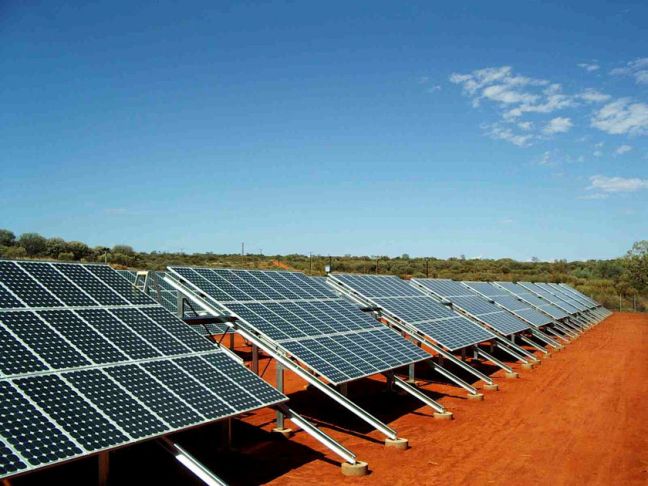The Africa Wealth Report for 2017 states that there are over 160 000 millionaires across the continent. This means that other countries save Nigeria and South Africa that are famously known to be hubs of opportunity, are now growing rapidly. Look at Botswana and Senegal for example.
The new brood of millionaires throughout Africa is mostly young entrepreneurs working together with investors to build business entities that operate in the most lucrative sectors of the economy. These small businesses offer employment opportunities too and this is how Africa remains a continent that’s focused on wealth creation.
But starting a business in any African country today is a little different from starting one in a first world country. There’s serious lack of funds and infrastructure in most countries. This is followed by some enormous bureaucratic hoops you’re expected to jump through to keep the government happy.
At the mention of ‘today’s business’, many reading this would probably think about using the latest technologies. You don’t have to over-utilise iPads and smartphones in order to grow rich in the African clime. The trick is knowing the right African business idea, one that is already in existence, to re-innovate.
So let’s begin.
1. Solar Power and Panels
Firstly, solar energy is one of Africa’s most abundant natural resources. Most parts of sub-Saharan Africa enjoy more than 300 days of free God-given sunlight every year. Also, electricity is a major issue in many of the rural areas in most African countries.
Over 600 million people on the continent, especially in rural areas, don’t have access to reliable electricity. In most cities and towns, power outages are the norm and people often have to rely on noisy petrol and diesel power generators.
Solar energy is free, absolutely clean and abundant. And it provides the best alternative for people in remote parts of Africa who are out of reach of electricity grids.
Interestingly, some smart entrepreneurs are rising to the challenge of lighting up Africa through solar energy, through investing or buying/selling. Whichever route you go through whether you want to invest in a solar energy startup or you want to create a startup, you are very likely gearing up to join the millionaires club.
2. Property
Africa’s property market serves as a major opportunity for both entrepreneurs and investors alike. Nigeria, Angola, Mozambique, Egypt, Kenya, and South Africa are pinpointed as key markets to watch.
Property investment spans from high-rise luxury hotels and shopping malls, to residential houses or apartments. Nigeria in particular requires investment in their housing as they are suffering a shortfall. This provides opportunities for buyers, sellers, contractors, engineers and the like.
3. Agriculture
Agribusiness is Africa’s untapped goldmine, and a major potential source of millionaires in the coming years. Agriculture and agribusiness is one of the biggest industries in Africa. Sub-Saharan Africa stands out as having the most potential to boost the continent’s economic growth.
According to a World Bank report, Africa’s agribusiness industry is expected to be worth $1 trillion by 2030.
Still, every year, African countries import more than 70 percent of wheat consumed, over 300,000 tons of chicken and spend more than $10 billion on imported grains, especially rice.
With up to 60 percent of the world’s uncultivated arable land, fertile soils, abundant labour, and all-year sunshine, sub-Saharan Africa surely has the potential to become the world’s biggest exporter of food products.
Even if Africa decides to ignore export markets, the continent’s one billion people provides a huge and ready market for agribusiness.
Interestingly, more African entrepreneurs are tapping into the vast opportunities in Africa’s agribusiness market.
And with the continued threat of climate change and electric cars, sleeping agribusiness giants like Nigeria and Angola are finally putting a strong focus on agribusiness as a means to diversifying their economies. This means that governments in these countries are now more open and supportive of agribusiness initiatives.
4. Programming and App Development
There’s a digital revolution taking over Africa. These days, many services now have an app or are going online. Africa’s digital economy is growing really fast.
These days, there’s almost an app or online service for anything you want.
If you’re looking for a suitable hotel accommodation in Nigeria, Hotels.ng and Jovago.com are now the biggest online services in the hotel booking business. Recently, Hotels.ng attracted an investment of $1.2 million.
If you want to watch African movies on the fly, there’s an app for that. IrokoTV is an app that gives you access to 5,000+ African movies on your mobile phone.
In January 2016, IrokoTV secured an additional $19 million in investment funding to expand its presence across Africa.
5. African Art

How much do you think African art is worth these days?
You’ll be surprised.
In November 2014, a collection of antique African art from Mali, Gabon, Congo and Liberia was sold in New York at Sotheby’s for a record-breaking price of $41 million. This is the largest ever sum realized from the sale of African art in the USA.
In the last five years, African art pieces have been selling at breakneck prices. Not too long ago, a set of wooden sculptures by the Nigerian artist Ben Enwonwu sold in London for £361,000, three times the expected price.
New World Map, the aluminium and copper sculpture of El Anatsui, the Ghanaian artist, sold for roughly $767,000, one of the highest prices ever fetched by the work of an indigenous African artist.
After decades of neglect, both antique and contemporary works of African art are attracting high prices in the world’s major art markets.
Across the world, from New York to London, both antique and contemporary African works of art are now commanding high prices in the major art markets of the world.
So much so that the biggest art auction houses in the world, like Sotheby’s and Bonhams now have departments and teams dedicated to promoting and developing the business of selling African art.
In 2017, more investors and collectors will be upping the demand for African art, and more millionaires will be made in the process.
6. Blockchain Technology (Bitcoin)
If you don’t know about Bitcoin and blockchain, you should – especially if you want to amass wealth in Africa. According to ForbesAfrica, Bitcoin is the virtual currency challenging governments, circumventing banks and threatening to blow old-school currency out the water.
From humble worldwide beginnings Bitcoin, a digital currency, otherwise known as cryptocurrency, was born from blockchain technology – a mass linking of computers.
In November 2015, A Bitcoin was $260. Exactly one year later that Bitcoin was $900. It grew over 300%. Today it’s over $4,000.
While Africa has not yet witnessed the high level of cryptocurrency adoption that the United States, Europe, and the UK have seen, there are several start-ups and individuals in Africa that are building an African bitcoin ecosystem by leveraging bitcoin and its underlying technology, the blockchain, to deliver innovative services to African consumers and businesses. Bitcoin in Africa is growing.
Yet Bitcoin is the tip of the iceberg when it comes to blockchain technology. This major technology gets tech around the world to become a super computer to transfer money to store contracts or whatever else that happen from peer to peer. So contracts are transparent and can be dictated by the parties involved.
Conventional money is managed by states and banks, with users on the receiving end of monetary policy decisions. By contrast, most activities on the Blockchain are peer-to-peer. That means they are managed by users themselves and do not require intermediaries. Some of them have global outreach thanks to digital technology, while others are locally based.
Starting a venture in these industries will certainly see you raking in the profits. But only if you do it properly. You need to address all the legalities and administrative details and keep a projection for what you expect in coming month or years!












